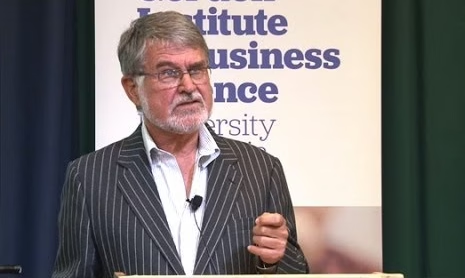Billionaire entrepreneur Jannie Mouton has proposed a R7.2 billion acquisition of Curro Holdings through his charitable vehicle, the Jannie Mouton Foundation. The initiative aims to delist the company from the Johannesburg Stock Exchange and pivot its focus toward becoming a reinvestment-driven, non-profit organization centred on broadening access to high-quality schooling.
The proposal was unveiled as a formal Scheme of Arrangement, offering Curro shareholders a calculated premium that significantly exceeds the company’s recent trading value. The deal includes a combination of approximately 6.6 percent in cash, 79.7 percent in Capitec Bank shares, and 13.7 percent in PSG Financial Services shares, totaling a value of R13 per share.
“Over time, this will open the door for thousands more children to attend Curro schools through bursaries, broadening access to excellent education,”
Mouton remarked, underlining the long-term societal aim of the transaction.
The foundation currently holds a 3.36 percent stake in Curro and has no commercial or competitive conflict with the education provider. Curro Chief Executive Officer Cobus Loubser noted that an independent board would review the proposal, adding that the foundation’s involvement presents no conflict of interest.
“The foundation is not a competitor of Curro,”
Loubser confirmed, signalling that the bid will be treated with full objectivity by the company’s board.
The philanthropic vision behind the acquisition is ambitious. If approved, the transaction could see Curro transformed into a reinvestment-led institution, using its returns to construct new schools, upgrade facilities, and extend its bursary schemes. The Jannie Mouton Foundation has stated that the deal could become
“the largest philanthropic contribution South Africa has ever seen,”
positioning it as a landmark moment in the history of education in the country.
Investor sentiment appeared overwhelmingly positive following the announcement. According to Daily Investor, Curro shares surged by more than 50 percent on Wednesday, 27 August, in the wake of the news—underscoring confidence in both the offer’s financial structure and its broader vision for societal benefit.
Mouton, a key figure in South African business circles and the founder of major financial institutions including Capitec Bank and PSG Group, has deep roots in Curro itself. His direct involvement lends considerable weight to the transaction, not only in financial terms but also in its potential to reshape the identity of the company.
Rather than continuing as a traditional private enterprise focused on shareholder returns, the re-imagined Curro could emerge as a dynamic educational institution with a social mandate—one that aims to evolve and adapt while staying true to its founding purpose of delivering top-tier schooling.
The broader implications of this shift raise several questions: Can a private education provider succeed under a non-profit model in the South African context? Will this set a precedent for how wealthy individuals and foundations engage with education in the future? And perhaps most importantly, will the intended outcomes—more schools, more bursaries, and more learners with access to better education—materialize as promised?
For now, the spotlight rests on the response of Curro shareholders and regulators. Should the deal progress as outlined, it could mark the beginning of a significant shift in how large-scale education is financed and delivered in South Africa.

















